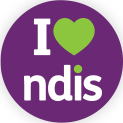Development Life Skills Ndis
The Development Life Skills Ndis program is a comprehensive initiative aimed at supporting individuals in acquiring essential life skills. As part of the National Disability Insurance Scheme (Ndis), this program offers a range of benefits to participants, empowering them to lead independent and fulfilling lives. With a particular focus on the Sydney region, Ndis provides crucial support and resources to enhance life skills development. The program encompasses key components such as communication, problem-solving, and self-care, equipping individuals with the necessary tools to navigate daily challenges effectively. Through its dedicated efforts, Ndis has successfully transformed the lives of many, fostering independence and enabling personal growth. By offering valuable resources and facilitating opportunities, Ndis continues to pave the way for a brighter future in life skills development.
Benefits of Development Life Skills Ndis
The benefits of Development Life Skills Ndis are numerous and highly impactful for individuals seeking personal growth and independence. The NDIS (National Disability Insurance Scheme) plays a crucial role in providing support and resources for the development of daily living and life skills. In Sydney, there are various programs and services available that focus on NDIS development life skills.
One of the key benefits of participating in NDIS life skills programs is the enhancement of daily living activities. These programs offer individuals with disabilities the opportunity to learn and practice essential skills that are necessary for independent living. Activities such as cooking, cleaning, budgeting, and personal hygiene are taught in a structured and supportive environment. This enables participants to gain confidence and autonomy in managing their daily life activities.
Moreover, NDIS development life skills programs also provide individuals with disabilities the opportunity to engage in activities that are tailored to their specific needs. For those with learning disabilities, there are specialized programs that focus on activities for life skills development. These programs aim to improve cognitive abilities, communication skills, problem-solving, and social interaction.
Additionally, life skills training under the NDIS helps individuals develop self-esteem, self-confidence, and a sense of purpose. By acquiring practical skills and knowledge, individuals become more self-reliant and are better equipped to navigate the challenges of daily life. This, in turn, leads to increased independence and a higher quality of life.
How Ndis Supports Life Skills Development Sydney
Ndis plays a crucial role in supporting the development of life skills in Sydney by providing tailored programs and services for individuals with disabilities. These programs aim to enhance various aspects of life, such as confidence, communication, and independent living. Ndis recognizes that individuals with disabilities often face unique challenges in their everyday lives and require specific support to overcome these barriers.
One way Ndis supports life skills development is through training and education programs. These programs are designed to equip participants with the necessary skills and knowledge to navigate their daily lives more independently. From budgeting and financial management to cooking and household chores, participants receive training in a wide range of practical skills that promote their autonomy and self-sufficiency.
Furthermore, Ndis fosters community participation and engagement. It recognizes the importance of social connections and belongingness for individuals with disabilities. Through community funding initiatives, Ndis encourages participants to engage in recreational activities, join clubs or organizations, and build meaningful relationships with others. These opportunities not only enhance social skills but also promote overall well-being and a sense of belonging.
Key Components of Ndis Life Skills Program
The Ndis life skills program comprises essential components that facilitate the development of crucial skills for individuals with disabilities. These key components are designed to support the individuals in their daily living skills and enable them to participate more fully in society. One of the key components is the funding of support, which allows individuals to access the necessary resources and services to develop their life skills. This funding ensures that individuals have access to a range of training programs and activities that are tailored to their specific needs.
Another important component is the staff of the service provider. The staff play a crucial role in delivering the life skills program, as they provide support, guidance, and assistance to individuals with disabilities. They are trained professionals who have the knowledge and expertise to help individuals develop their everyday tasks and life skills.
The life skills program also focuses on a range of training that covers various areas such as communication skills, independent living skills, social skills, and vocational skills. These trainings are designed to enhance the independence and self-confidence of individuals with disabilities, enabling them to navigate and participate in their communities more effectively.
Enhancing Independence Through Ndis
Enhancing independence through the Ndis program can greatly empower individuals with disabilities to lead more autonomous and fulfilling lives. The Ndis program focuses on the development of life skills, which are essential for individuals to navigate their daily lives with greater independence and confidence. These skills include tasks such as managing personal finances, using public transport, and planning and organizing daily activities.
One key aspect of enhancing independence through Ndis is identifying and leveraging an individual's abilities. The Ndis program works closely with the individual and their family to understand their unique strengths and capabilities. By recognizing and building upon these abilities, individuals are better equipped to tackle challenges and accomplish tasks independently.
Moreover, the Ndis program emphasizes the importance of teamwork and collaboration. A dedicated support team, including the individual, their family, and their Ndis provider, work together to set goals, create strategies, and monitor progress. This collaborative effort ensures that the individual's needs and aspirations are at the forefront of their support plan.
Additionally, enhancing independence through the Ndis program involves effective time management and budgeting. Individuals are encouraged to learn how to prioritize tasks, set realistic goals, and manage their time effectively. Budgeting skills are also taught, enabling individuals to make informed decisions regarding their finances and ensure financial independence.
Success Stories From Ndis Life Skills Program
The Ndis life skills program has witnessed numerous success stories, showcasing the remarkable progress individuals with disabilities have achieved in gaining independence and fulfilling their potential. The program, through its ndis life skills development service, focuses on empowering individuals to develop essential daily living and life skills. By providing them with the necessary tools and support, the program enables participants to lead an independent life and improve their overall quality of life.
One success story is that of John, a young man with autism who struggled with daily life challenges. Through the life skills development support offered by the Ndis program, John was able to learn important skills such as cooking, cleaning, and managing his finances. These skills not only improved his independence but also boosted his self-confidence and self-esteem. Today, John leads a fulfilling life of independence, working as a chef in a local restaurant and maintaining his own apartment.
Another success story is that of Sarah, a woman with physical disabilities who faced difficulties in performing daily life skills. With the support of the Ndis life skills program, Sarah learned how to use assistive technology and adaptive equipment to overcome her challenges. She now manages her daily life skills with ease, including personal care, household chores, and transportation, allowing her to live a more independent and fulfilling life.
These success stories highlight the transformative impact of the Ndis life skills program on individuals' lives. By equipping them with the necessary skills and support, the program enables individuals to overcome the challenges of daily life and lead a more independent and fulfilling life.
Ndis Resources for Life Skills Development
Ndis offers a range of resources to support the development of life skills in individuals with disabilities. These resources are designed to help individuals acquire essential skills that are necessary for everyday life. One of the key aspects of life skills development is personal care, which includes activities such as grooming, hygiene, and self-care tasks. Ndis provides resources and support to help individuals with disabilities develop and improve their personal care skills.
In addition to personal care, Ndis also focuses on the development of social skills. Social skills are essential for effective communication and building positive relationships with others. Ndis offers various resources and programs to help individuals with disabilities improve their communication and interpersonal skills. These resources may include social skill development activities, workshops, and training programs.
Ndis resources for life skills development are designed to address the specific needs of individuals with disabilities. These resources can be accessed through various means, such as email communication, online platforms, or through Ndis service providers. By utilizing these resources, individuals with disabilities can enhance their abilities to perform daily tasks and participate more fully in everyday life.
Overcoming Challenges in Life Skills Development
To effectively develop life skills, individuals must confront and overcome various challenges. In a life skills development program, individuals with disabilities often face unique obstacles that require tailored support from disability services. One common challenge is managing their core support budget effectively. This involves understanding financial management skills development and making informed decisions about allocating funds for necessary resources, such as assistive technology.
Another challenge individuals may encounter is learning to navigate customer service interactions. This includes developing effective communication and problem-solving skills to advocate for their needs. Additionally, household tasks, such as cooking and cleaning, can be challenging for individuals with physical disabilities. Support services can provide training and assistive devices to help individuals overcome these barriers and become more independent.
Participating in community activities is another challenge that individuals may face. They may need assistance in finding inclusive activities and gaining the confidence to participate. Personal skills development can help individuals build social skills, self-esteem, and resilience, enabling them to engage fully in their communities.
Future Opportunities With Ndis Life Skills Program
Future opportunities await individuals participating in the Life Skills Program offered by NDIS. This program focuses on life skills development for individuals with disabilities, aiming to enhance their capacity to navigate daily life. The NDIS life skills program encompasses a range of essential skills, including personal presentation, practical skills, and daily life skills development.
Through this program, participants have the chance to develop their personal presentation skills, which can greatly improve their self-confidence and social interactions. This is particularly important for individuals with disabilities, as it can help them overcome barriers and achieve greater independence in their personal and professional lives.
Moreover, the NDIS life skills program emphasizes the development of practical skills that are essential for daily life. These skills can include cooking, cleaning, budgeting, and time management, among others. By acquiring these practical skills, individuals are better equipped to live more independently and participate actively in their communities.
In terms of funding, the NDIS life skills program falls under the capacity building category. Capacity funding supports the development of skills and capabilities, enabling individuals to achieve their goals and maximize their potential.
Frequently Asked Questions
How Does the Development Life Skills Ndis Program Cater to Individuals With Disabilities?
The development life skills NDIS program caters to individuals with disabilities by providing them with tailored support and resources to enhance their ability to participate in daily activities, improve their independence, and develop essential skills necessary for personal growth and success.
Are There Any Age Restrictions for Participating in the Ndis Life Skills Program?
There are no age restrictions for participating in the NDIS life skills program. This program aims to support individuals with disabilities in developing essential skills for daily living, regardless of their age.
Can Individuals With Limited Mobility Still Benefit From the Ndis Life Skills Program?
Individuals with limited mobility can still benefit from the NDIS life skills program. The program is designed to cater to the needs of all participants, including those with mobility limitations, by providing tailored support and resources to enhance their overall quality of life.
Are There Any Financial Costs Associated With Accessing Ndis Resources for Life Skills Development?
Yes, there are potential financial costs associated with accessing NDIS resources for life skills development. These costs may include service provider fees, equipment and assistive technology expenses, and any additional support or training required.
Can Individuals Living in Rural or Remote Areas Access the Ndis Life Skills Program?
Individuals living in rural or remote areas can access the NDIS life skills program. The program aims to provide support and resources to help individuals develop essential life skills, regardless of their geographical location.
Development life Skills NDIS Sydney
Learn Life Skills, Live More Independently
Core Assist will guide a person with a disability to carry out chores on his/her own, step by step.
Development Life Skills
When domestic chores are completed in groups, it is a source of great delight for everyone involved. When a member is diagnosed with a disability, Core Assist recognises the difficulties that must be faced by the organisation. As a result, we provide specialised services so that our employees can assist the disabled in doing daily duties. It will facilitate the introduction of mobility within the home, which is the first step towards self-sufficient living.
Children and adults with disabilities necessitate additional care, thus it’s important that everyone pay attention.

There May Be A Delay In The Development of Abilities For A Disabled Person
- The ability to empathise and articulate oneself will be learned.
- Learning new skills may not be a simple task to achieve without assistance.
- To understand and distinguish between what is normal and what is expected.
- To be capable of overcoming cognitive and sensory difficulties to complete tasks.
- Effectively process and carry out tasks with multiple steps.
Connecting
The tasks will be introduced by the Core Assist personnel over the course of a series of events. The tasks are connected together in a chain. The act of brushing teeth will begin with the application of toothpaste to the toothbrush. As a result of following step-by-step directions, the duties will not become confused or overwhelming. As the disabled person grows, the task will become easier and familiar, allowing them to complete chores with minimal help.
Visual learning
Core Assist also believes that establishing a visual prelude will assist the impaired in learning more quickly and effectively. Instead of simply expecting a client’s behavior to occur, Core Assist personnel will use graphics, videos, or words to ensure that the client understands the expectations. The images are tailored to each situation as needed to make it easier to navigate.
In addition, the team will prepare the parents to assist in the process. Because of the need for repetition and adaption of these visual aids, it is essential that the disabled memorize them in order to finish the task quickly.
Video Tutorials
While some disabled people can learn by following instructions, others use visual aids to assist them. The disabled person will gain more knowledge through watching videos. These tutorials will be provided by Core Assist. You can also download them or, for a small fee, have the tutorials tailored specifically to your child’s needs.
The majority of these tutorials will include the completion of daily activities. It can also be used to demonstrate the completion of a process. Most importantly, it will assist the individual in understanding where they need more guidance to help them gain a sense of accomplishment.
Applications
Core Assist also believes that current technology may be used to assist the disabled in their development and progression in life. Children and adults with disabilities will find it much easier to learn by using mobile applications. These tools are fully customisable, and they make it simple to schedule and categorise time in order to save waste.
Want to know more?
Core Assist is available at all times to respond to client inquiries. Please use the contact form to get in touch with us if you require any additional assistance. We encourage you to follow us on Instagram, Facebook, and LinkedIn to keep up to date with our services and wide portfolio. We recognise how difficult it may be to live with a disability, so let’s work together to overcome the obstacles.


